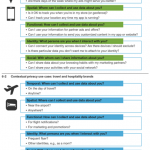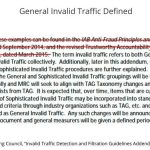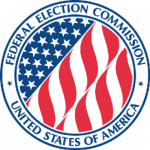Ads In Disguise? The FTC Guidelines For Disclosing Sponsored Influencer Posts
— July 21, 2017

sweetlouise / Pixabay
The fact that advertisement in print and online must be clearly labeled is (July 26, 2017)’s news. But due to the ongoing rise of influencer marketing and the not always so obvious lines between the expression of opinion and paid advertising, new rules for disclosing sponsored posts need to be defined. For the US market, the FTC created guidelines for the correct disclosure of sponsored posts – we will break down the FTC guidelines in this article.
We already examined the existing laws and regulations for the German market and noticed that although there are clear rules, a lot of sponsored posts are still not disclosed as such. On the other hand, a shift is palpable and influencers become more aware of their obligation to disclose their paid cooperations properly. It seems like the US market is not yet regulated as strongly in this regard.
In 2016, InfluencerDB conducted a study to examine hashtags on Instagram which are used for disclosing sponsored posts. For this, we looked at the most commonly used hashtags which mark ad postings over the course of three years and found that #ad is by far the most commonly used term, followed by #sponsored and #spon.
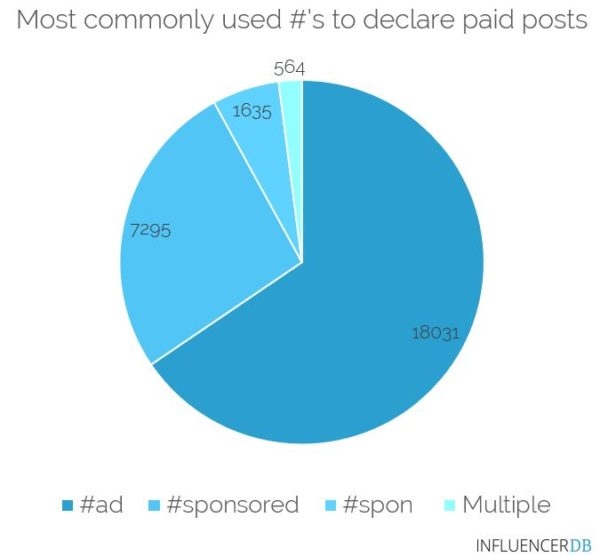
Our study shows that there seems to be awareness of the obligation to label sponsored posts. But nonetheless, the FTC sent out several warning letters regarding covert advertising to influencers just recently.
HOW THE FTC REGULATES THE DISCLOSURE OF SPONSORED CONTENT
The FTC (Federal Trade Commission) is an independent agency of the United States government. One of its main tasks is consumer protection. The commission states:
The FTC protects consumers by stopping unfair, deceptive or fraudulent practices in the marketplace. We conduct investigations, sue companies and people that violate the law, develop rules to ensure a vibrant marketplace, and educate consumers and businesses about their rights and responsibilities.
The rise of influencer marketing led to an additional field of action for the FTC. In April, the commission sent out letters to influencers and marketers, reminding them of the proper disclosure of posts which focus on brand or product promotions. A template of the letters is publicly accessible online.
The FTC does not only target the influencers themselves but companies as well. The independent agency already charged companies like Warner Bros. Home Entertainment and Lord & Taylor because influencers they collaborated with did not disclose their paid promotions.
THE FTC GUIDELINES TO DISCLOSING SPONSORED POSTS
The FTC published several guidelines on the disclosure of native ads in general and sponsored influencer posts. The guides apply to all forms of media, be it traditional forms like television or magazines, or new media like social networks. In the “Guides concerning use of endorsements and testimonials in advertising”, the FTC elaborates on influencers in particular.
WHY DO INFLUENCERS NEED TO DISCLOSE SPONSORED COOPERATIONS?
Sponsored posts have to be labeled as such to clarify the advertising nature of a posting. The FTC guidelines clarify why that knowing whether a post is an ad or not can impact the actions of users: “Knowing that something is an ad likely will affect whether consumers choose to interact with it and the weight or credibility consumers give the information it conveys.“
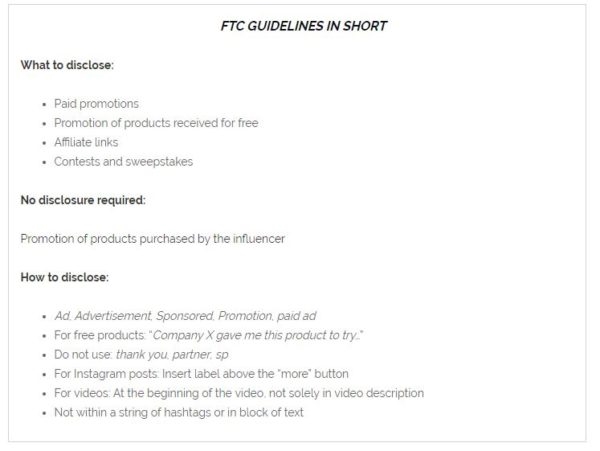
No disclosure required:
Promotion of products purchased by the influence
How to disclose:
- Ad, Advertisement, Sponsored, Promotion, paid ad
- For free products: “Company X gave me this product to try…”
- Do not use: thank you, partner, sp
- For Instagram posts: Insert label above the “more” button
- For videos: At the beginning of the video, not solely in video description
- Not within a string of hashtags or in block of text
WHAT NEEDS TO BE DISCLOSED?
According to FTC guidelines, endorsements have to be disclosed. The commission defines endorsements as “any advertising message that consumers are likely to believe reflects the opinions, beliefs, findings, or experiences of a party other than the sponsoring advertiser” (§255.0 b).
This definition clearly includes messages spread by influencers, endorsers, testimonials. Additionally, the FTC states that endorsements have to “reflect the honest opinions, findings, beliefs, or experience” of the influencer.
To clarify what an endorsement is and what is not, the FTC presents various examples.
NO ENDORSEMENT:
A consumer who regularly purchases a particular brand of dog food decides one day to purchase a new, more expensive brand made by the same manufacturer. She writes in her personal blog that the change in diet has made her dog’s fur noticeably softer and shinier, and that in her opinion, the new food definitely is worth the extra money.
NO ENDORSEMENT:
Assume that rather than purchase the dog food with her own money, the consumer gets it for free because the store routinely tracks her purchases and its computer has generated a coupon for a free trial bag of this new brand.
ENDORSEMENT:
Assume now that the consumer joins a network marketing program under which she periodically receives various products about which she can write reviews if she wants to do so. If she receives a free bag of the new dog food through this program, her positive review would be considered an endorsement under the Guides.
1 PAID PROMOTIONS AND FREE PRODUCTS
The Commission highlights that as soon as a material connection is present between an influencer and brand or company, this requires disclosure:
When there exists a connection between the endorser and the seller of the advertised product that might materially affect the weight or credibility of the endorsement (i.e., the connection is not reasonably expected by the audience), such connection must be fully disclosed. For example, […] the advertiser should clearly and conspicuously disclose either the payment or promise of compensation prior to and in exchange for the endorsement […].
Thus, whenever a material compensation (money, products, services) is given to the influencer, the influencer has to disclose the respective posting as an advertisement.

Generally, if an influencer is being paid for featuring a product in a posting or receives a different kind of value, the influencer has to disclose the connection towards the brand.
The same goes for free products or services the influencer receives from a brand with the intention that the influencer promotes these products. The Commission highlights that a disclosure is required regardless of the product’s price level.
2 AFFILIATE LINKS
Affiliate links are links to online shops. If a user purchases a product via this link, the influencer receives a commission.
The FTC suggests using expressions like “I get commissions for purchases made through links in this post.” to disclose the financial benefits of the cooperation. The label has to be placed in close proximity to the link.
3 CONTESTS AND SWEEPSTAKES
If an influencer runs a contest on their Instagram channel, Facebook page, or blog, a disclosure is required.
WHICH POSTS DO NOT NEED TO BE LABELED?
Those postings which include products the influencers purchased themselves do not need labeling.

HOW DO POSTS HAVE TO BE LABELED?
UNAMBIGUITY:
Disclosures need to be clear and the language used has to be unambiguous.
In contrast to German regulations, the FTC does not mandate specific wording but highlights that the relevant information needs to be transmitted.
The FTC states that Thank you, #partner, or #sp might not be sufficient to unveil the promotional nature of the post.
Suggested terms are:
- Ad
- Advertisement
- Sponsored
- Promotion
- Paid ad
- For free products: “Company X have me this product to try…”
PROXIMITY:
The labels have to be as close as possible to the ad.
For Instagram posts, the disclosure has to be placed above the “more” button.
For videos, for example, it is not enough to only put the label into the video description as users might watch the video without reading the description. Instead, the disclosure has to be placed in the video itself, and in the beginning instead of the end of the video.
EASY TO READ:
Font and color of the labels have to be easy to read and have to stand out against the background.
The labels are not to be placed in footnotes, hyperlinks or blocks of text.
Likewise, if a hashtag is used, the label is not to be placed within a string of numerous other hashtags.
WHO IS RESPONSIBLE FOR MONITORING THE CORRECT DISCLOSURE?
Apart from the influencers themselves, the companies are responsible for monitoring the proper disclosure of sponsored content.
The FTC states that “your company is responsible for any failures by the influencers you pay to adequately disclose that they received payments for their endorsements”.
THE TAKEAWAY
Although influencer marketing has been around for quite some time, the rules and regulations presented by the Federal Trade Commission are, like the name suggests, guidelines which help influencers to label their postings.
We noticed that in contrast to the regulations in Germany presented by the Landesmedienanstalten, the guidelines for the United States are laxer.
For example, the guidelines hardly state any fixed rules, but more often than not leave it to the influencers and companies how to interpret forms of cooperations, as this excerpt from the FTC’s FAQs shows.

In the end, be aware that social media is not an anarchic zone without regulations. Certain rules have to be observed when influencers engage in cooperations with brands. The influencer, as well as the marketer, can be charged if a sponsored post is not labeled correctly. Thus, both parties have to be aware of their responsibilities when engaging in influencer marketing.
The influencer, as well as the marketer, can be charged if a sponsored post is not labeled correctly. Thus, both parties have to be aware of their responsibilities when engaging in influencer marketing. Thus, both parties have to be aware of their responsibilities when engaging in influencer marketing.
_____________________________
Published originally on InfluencerDB | Influencer Marketing For Professionals
Digital & Social Articles on Business 2 Community
(25)







